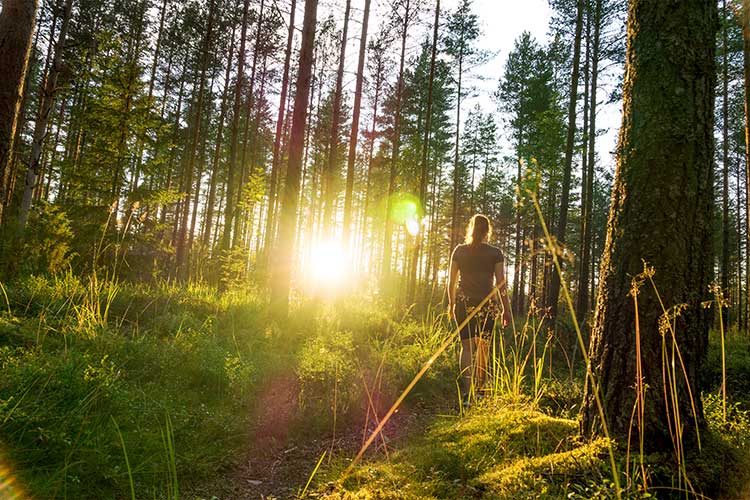A growing body of research confirms what many have long sensed intuitively: natural environments can play a measurable role in supporting health and recovery.
Studies in environmental psychology and biomedicine have shown that time spent in forests or green spaces is associated with lower cortisol levels, reduced inflammation, improved mood, and enhanced immune function.¹ ² This emerging evidence is prompting healthcare designers and clinicians alike to rethink traditional clinical environments.
In Japan, the practice of shinrin-yoku, or “forest bathing,” has been formally incorporated into public health strategies.³ In the U.S. and Europe, hospitals have begun integrating gardens, daylight architecture, and even outdoor treatment spaces into their infrastructure — not as amenities, but as clinical tools.⁴
While natural settings are not a replacement for evidence-based medical care, they may enhance its effects. A 2019 review published in Frontiers in Psychology concluded that exposure to natural environments supports stress recovery and emotional regulation, which in turn may influence health outcomes in complex ways.⁵
As healthcare continues to evolve, the integration of nature into medical settings is gaining ground — not for nostalgia’s sake, but because data now supports what the senses have long observed.
References:
Li, Q. (2010). Effect of forest bathing trips on human immune function. Environmental Health and Preventive Medicine, 15(1), 9–17.
Kuo, M. (2015). How might contact with nature promote human health? Promising mechanisms and a possible central pathway. Frontiers in Psychology, 6, 1093.
Hansen, M. M., Jones, R., & Tocchini, K. (2017). Shinrin-yoku (forest bathing) and nature therapy: A state-of-the-art review. International Journal of Environmental Research and Public Health, 14(8), 851.
Marcus, C. C., & Sachs, N. A. (2013). Therapeutic Landscapes: An Evidence-Based Approach to Designing Healing Gardens and Restorative Outdoor Spaces. Wiley.
Bratman, G. N., Hamilton, J. P., & Daily, G. C. (2012). The impacts of nature experience on human cognitive function and mental health. Annals of the New York Academy of Sciences, 1249(1), 118–136.



